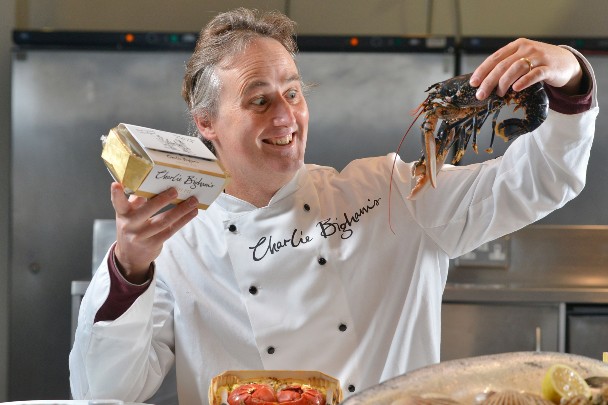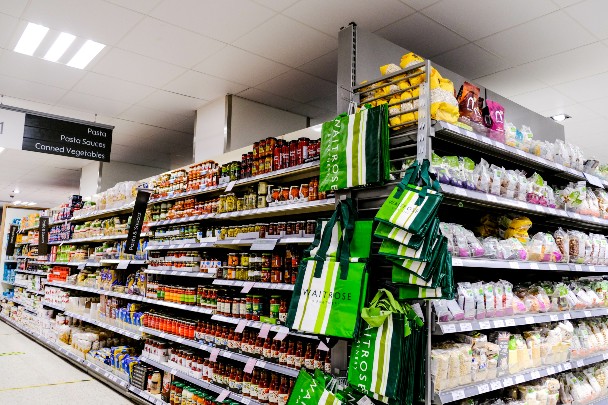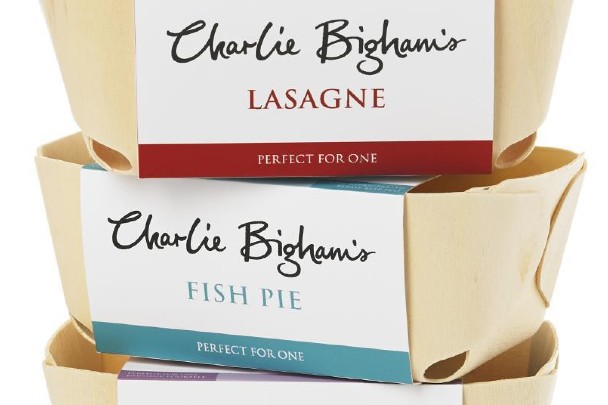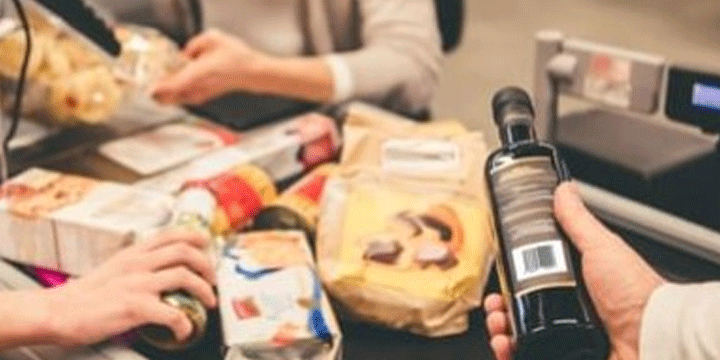October 31, 2023 Industry news
Charlie Bigham, the entrepreneur and chef known for founding his eponymous food company, recently appeared on stage at the Bread & Jam festival 2023 to share some of the secrets behind his incredible success.
With 27 years in the business, his story is one of passion, dedication and an uncompromising commitment to quality that has seen his brand grow from humble origins to become the fastest growing grocery brand in the UK.
Turning passion into profit
Developing a love of food and cooking from an early age, Charlie originally began his working life as a management consultant but, realising there was more to life, decided to turn his passion into a business.

According to Charlie, convenience food in the early nineties was terrible. Back then, convenience often meant compromise and disappointment, but Charlie wanted to create something different. He says adopting the mindset of a frustrated consumer fuelled his desire to create delicious, restaurant-quality meals that people could enjoy at home without the hassle of cooking from scratch.
As a founder, he believes maintaining this unrelenting commitment to quality, staying present and keeping involved in his products has been integral to the brand’s continued success.
Humble beginnings
In 1996 Charlie started cooking meals in his own kitchen and selling them at a local market where he regularly received positive feedback from customers who appreciated the convenience and gourmet quality of his products.
At the time, he knew nothing about factories, preservatives, shelf life or “mouth feel” but now believes that was a good thing as his lack of pre-conceived ideas gave him the freedom to innovate and create something completely different. Using high-quality ingredients and creating dishes that tasted homemade was central to his brand's philosophy.
He also aimed to reduce the use of additives and preservatives, further setting his products apart from typical frozen and convenience foods.
Getting started
With little more than an idea and his home kitchen, Charlie began approaching the banks. After being turned away thirteen times, the fourteenth bank he approached allowed him to open an account and he soon opened his first, 500 square foot kitchen in Park Royal, North West London.

After hiring Spike, his first chef, he began supplying meal kits to a small London Deli. Packed with the freshest high quality ingredients, his kits proved to be a hit and he was soon supplying a variety of high-end stores across the capital.
Now certain that he was onto something, he took a chance and phoned the Waitrose switch board, confidently declaring he had something that “was pretty good”. After convincing buyers his products were "at least good enough to have a meeting about", he quickly won them over and has been selling with Waitrose ever since.
This was Charlie’s big break. At the time, Waitrose were much smaller with around 70 stores but they believed in his products and worked hard to promote them, allowing the brand to grow as Waitrose’ presence increased.
Growing and evolving
Charlie’s brand and products have come a long way since those early meal kits. They now produce over 50 different recipes made by a team of more than 750 people spread across two large kitchens in London and Somerset.
Their meals are now sold in around two thousand shops across the UK and enjoyed by more than 1 million people each week. “We view this as a big responsibility” says Charlie. “We need to make sure that all 1 million of our customers get to the end of their meal thinking ‘wow, that really was better, that really was worth it’. That is our job”.

Staying focused
As a result of their commitment to delivering the highest quality, Charlie Bingham’s is now the fastest growing Grocery brand in the UK and has enjoyed consistent growth for over 15 years. Fuelled by widening distribution and recent investment in advertising, the brand saw £121 million in sales and a 29% jump in revenues in 2022 alone.
Charlie believes that this incredible success has largely been down to never losing sight of what makes his products different. This includes:
The personal touch: all recipes are created by Charlie and his chefs. There are no traffic light targets, just naturally good food. As his name is on the brand, Charlie makes sure he gets to taste everything and would never sell a product he wouldn’t want in his own fridge.
Freshness: Almost all the ingredients used are fresh with over 20 deliveries to their production kitchens each day.
Small batches: All food is made in kettles and pans and finished by hand, just as it would be at home. Operating on "a similar scale to a large hotel kitchen", Charlie Bigham’s has always been insistent on not making bigger and bigger batches. Part of the brand's whole ethos is cooking in small batches.
Looking and tasting great the part: the quality of ingredients is always reflected in the taste and appearance of Charlie Bigham's meals. As a result, the brand has won 52 great taste awards in the last 7 years.
People focused: Charlie Bigham’s listen to their consumers. About 200 people write in each week and every letter or email is read. Positive feedback keeps the team motivated while the not-so-great helps them improve and focus on being better.
Tips for fellow founders
Charlie concluded by sharing some of the top tips and tricks he as developed over the past 27 years. These included:
Know your suppliers
Charlie believes that most food business are only as good as their supply chains so has put a great deal of time and effort into getting to know his suppliers. He prides himself on knowing the people and processes behind every ingredient and has built close working relationships with each of his supply chain partners, many of which now go back decades. He advised fellow food founders to go and see where and how their ingredients are produced, saying “you can’t make really good food without knowing where it all comes from and understanding the process behind it".
Be obsessive
Whether you want to be the most sustainable, freshest, healthiest or of the highest quality, never lose focus of your mission and always strive to do better. Charlie Bingham’s have chosen to be obsess over their taste of their meals and, as a result, they have never been better. By remaining focused on what makes their products stand out and always wanting to improve, they have never had to sacrifice quality despite significantly scaling up their operations.
Build a great team
If your team share your passion, that will be reflected in the quality of your brand and products. Create an environment that people want to work in, bring them along on your journey and get them invested in the success and ethos of your brand.
Build brand love
If you have the budget or resources, invest in spreading the word. In 2022 alone, Charlie Bigham’s were able to reach 6.3 million consumers by investing heavily in a winter ad campaign as well as further 8.6 million through an always-on ad campaign with the Guardian.
Packaging matters
“We eat first with our eyes” says Charlie so ensuring your packaging stand out from the crowd and highlights what is special about your products is essential. Adding QR codes to your packaging is also a great way to tell your brand story, world view and boost engagement on social media. Printing QR codes for consumers to scan along with clear messaging has helped Charlie Bingham grow their audience aby 150,000 in the last year alone.
Follow the data
According to Charlie, having access to trusted data and the ability to share it is essential. Understanding the value of your category and where you sit within it is very important in the beginning. Not only will data help you identify potential weaknesses, areas for improvement and where you need to invest, it will make things much easier when it comes to approaching and tempting new retailers or business partners.



